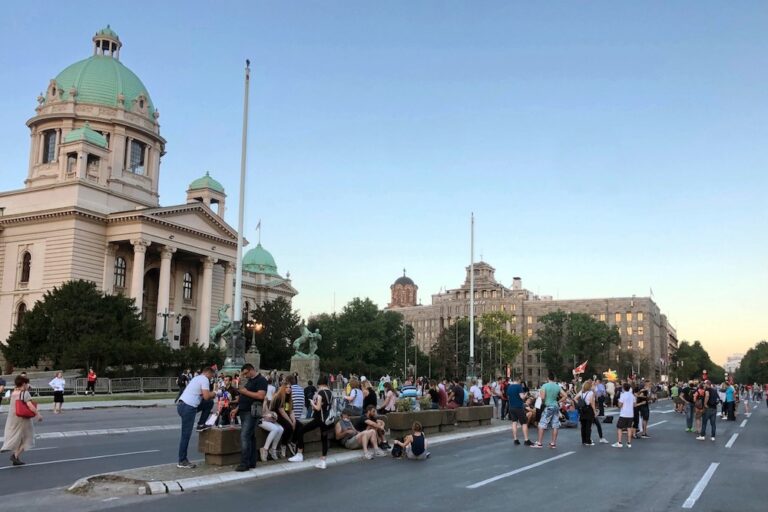(RSF/IFEX) – According to RSF, on 9 March 1998, the Attorney General for Belgrade confirmed that he took “appropriate measures” against the editors-in-chief of the newspapers “Blic”, “Nasa Borba”, “Danas”, “Dnevni Telegraf”, “Demokratija” as well as “certain television stations”, which encouraged “the acts of terrorists” and gave “a false image of the acts of the […]
(RSF/IFEX) – According to RSF, on 9 March 1998, the Attorney General for
Belgrade confirmed that he took “appropriate measures” against the
editors-in-chief of the newspapers “Blic”, “Nasa Borba”, “Danas”, “Dnevni
Telegraf”, “Demokratija” as well as “certain television stations”, which
encouraged “the acts of terrorists” and gave “a false image of the acts of
the Serbian police in Kosovo.” On 10 March 1998, Slavko Curuvija,
editor-in-chief of “Dnevni Telegraf”, and Ivan Mrdjen, editor of “Nasa
Borba”, were taken to a police station and interrogated about the
standpoints of their respective newspapers regarding ongoing events in Kosovo.
**Updates information in an IFEX alert of 9 March 1998 put out by the
International Federation of Journalists (IFJ)**
RSF is concerned about the steps taken by the Attorney General against the
independent media in Serbia. RSF notes that these new measures will
reinforce the systematic indictment against Serbian independent media as
being “in the hands of outside interests” intent on “destabilizing the
country.” RSF also notes that the media which has been the subject of attack
so far are the only voices in Serbia seeking to provide independent coverage
of the conflict in Kosovo.


